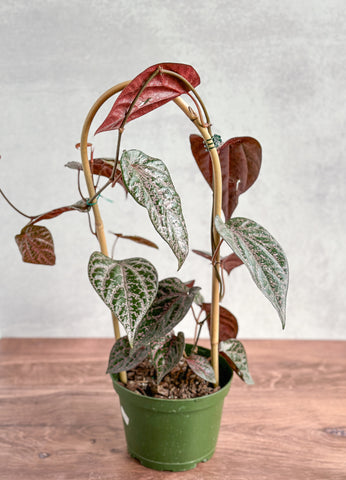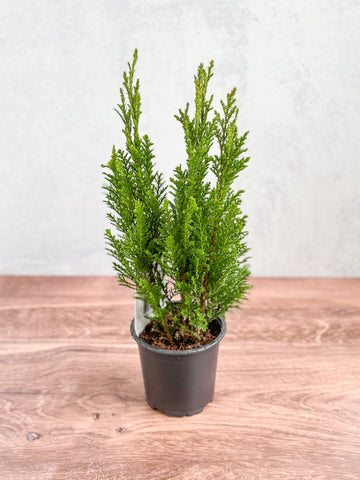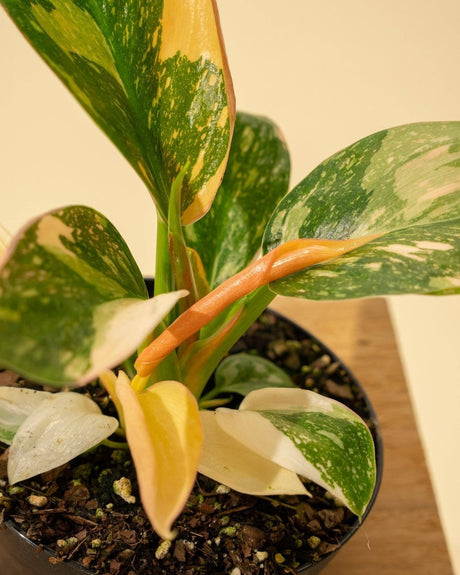The idea that playing music can influence plant growth has intrigued many over the years. The theory suggests that sound waves could stimulate growth-promoting processes within plants. This concept has been explored through various studies, though scientific consensus remains elusive. Let’s explore the question, “does music affect plant growth” in more detail below.
Historical Background
The notion that music affects plant growth gained popularity in the 1970s, notably through the book The Secret Life of Plants. This book presented the idea that plants could respond to the emotions and intentions of humans, and it explored how music might influence their growth. Early experiments, such as those by Dr. T. C. Singh in 1962, claimed substantial growth improvements in plants exposed to music, suggesting a profound connection between sound and biological response.
Scientific Studies on Music and Plant Growth
One of the first documented experiments was conducted by Dr. Singh at Annamalia University. He reported a 20% increase in height and a 72% increase in biomass of balsam plants when exposed to classical music compared to a control group. Singh's subsequent experiments with raga music produced even more promising results, with crop yields surpassing the national average by up to 60%.
In the United States, Dorothy Retallack conducted her own series of experiments which further supported the idea that music could influence plant behavior. Retallack exposed plants to various genres of music, observing that those which "listened" to classical and jazz oriented themselves towards the speakers and thrived, whereas those exposed to rock music demonstrated negative growth effects. These experiments suggested that not only the presence of music but also the type of music played could significantly affect plant growth.
Skepticism and Criticism
Despite these early findings, many in the scientific community have been skeptical of the methodology and conclusions of these studies. Critics argue that these experiments often lacked proper controls and reproducibility. The University of California, Santa Barbara, points out that factors such as light, water, soil conditions, and even the presence of the researchers could have skewed the results.
Furthermore, some researchers propose that any observed benefits to plants may not directly result from the music but from increased care and attention from the gardeners who believe in the practice. This suggests a placebo effect in horticulture, where the expectations of the caretaker rather than the treatment itself drive improvements in plant health.
The Role of Sound Vibrations
A more scientifically grounded theory posits that it is not the music per se that benefits the plants but rather the vibrations produced by sound waves. These vibrations could potentially stimulate cytoplasmic streaming, a critical process in which cells transport nutrients and growth hormones. Some scientists liken the beneficial effects of certain music on plants to the natural stimulation from environmental sounds like bird calls or wind.
Impact of Music Genre on Plant Health
Different music genres appear to have varying effects on plant health according to anecdotal evidence and some experimental data. Classical and jazz music, often characterized by soothing rhythms and harmonies, have been reported to promote growth and health in plants. Conversely, rock and metal, known for their harsher and louder tones, have been linked to negative growth effects, such as reduced plant size and vitality.
The physiological responses of plants to these genres may be tied to the specific vibrations each type of music emits. The gentler vibrations of classical music could mimic natural environmental sounds that plants are evolutionarily adapted to thrive around. On the other hand, the intense vibrations from rock music might be too harsh, possibly causing stress or damage to plant structures.

Role of Frequency and Volume in Plant Growth
The frequency and volume of music could play critical roles in how plants respond to auditory stimuli. High-frequency sounds have been shown to potentially encourage growth by stimulating certain biological processes within the plant cells. Lower frequencies, while still effective in some contexts, might not have as pronounced an impact depending on the species and environment.
Volume is equally critical; too loud can be detrimental regardless of the type of music played. Moderate volume levels are ideal to prevent any potential stress or damage that loud noises might cause. It is about finding a balance that mimics the natural sound levels plants would experience in their native environments.

Experimental Design and Scientific Rigor
One major challenge in validating the effects of music on plant growth is the design of experiments. Many earlier studies lacked the rigorous controls and standardized methodologies that modern science demands. This has led to skepticism regarding the validity of reported results and the reproducibility of experiments.
Recent studies aim to overcome these challenges by using precise instruments to control and measure sound exposure, as well as including adequate control groups. By improving experimental design and focusing on the scientific method, researchers hope to provide clearer answers about the relationship between sound and plant growth.
Gardener Observations and Anecdotal Evidence
Despite the lack of definitive scientific consensus, many gardeners swear by the positive effects of music on their plants. They report that their plants appear healthier and grow faster when exposed to music, particularly classical or soothing genres. These anecdotal accounts often spur further scientific investigation and help to shape experimental questions.
Gardening communities frequently share their experiences and techniques, including the types of music they play for their plants. This collective knowledge, while not scientifically rigorous, provides valuable insights into potential benefits of music for plant care and encourages a more holistic approach to understanding plant health.
Future Directions in Research and Application
The field of plant bioacoustics continues to evolve as researchers explore more about how plants perceive and react to sounds. Future research might focus on identifying specific frequencies that most benefit plant growth, examining different plant species' responses, and determining the optimal sound conditions for agricultural applications.
Furthermore, integrating sound into commercial farming and indoor gardening practices could revolutionize plant care and cultivation strategies. By tailoring sound environments to the needs of specific crops, producers could enhance growth rates, improve plant health, and potentially increase yield without the use of chemical additives. This sustainable approach could lead to new advancements in how we grow and manage plants in various settings.
Modern Perspectives and Continuing Research
Despite the controversies, interest in the effect of sound on plant growth continues. Modern studies tend to focus on more precise measurements and controls to isolate the impact of sound vibrations from other variables. These studies strive for a clearer understanding of how and why certain frequencies or types of sound may influence plant physiology.
Technological advancements and interdisciplinary collaborations are increasingly playing a role in this research area. Scientists are utilizing sophisticated acoustic equipment and collaborating with experts in fields such as physics and botany to dissect the intricate ways plants interact with their sonic environment. This approach not only enhances the reliability of the results but also broadens the scope of the research, potentially uncovering new aspects of plant behavior and response to sound.
Proper Plant Care is Needed Too
While conclusive scientific evidence is still pending, the theory that music can affect plant growth continues to captivate the imagination of many. Whether through indirect effects such as enhanced caretaker diligence or more direct mechanisms involving sound-induced physiological changes in plants, the potential for music to influence plant health remains an intriguing possibility. As research progresses, perhaps we will come to better understand the intersections of sound, care, and plant growth, shedding more light on this captivating topic.
Ed's Plant Shop's Experience
Shop for the perfect indoor plants at Ed's Plant Shop for plants that thrive in a soothing auditory environment. With our wide selection of houseplants that you can grow yourselves, you have the choice to take care of them using a blend of music and other practical tips that you know of. Browse our collection of healthy indoor plants today!
















